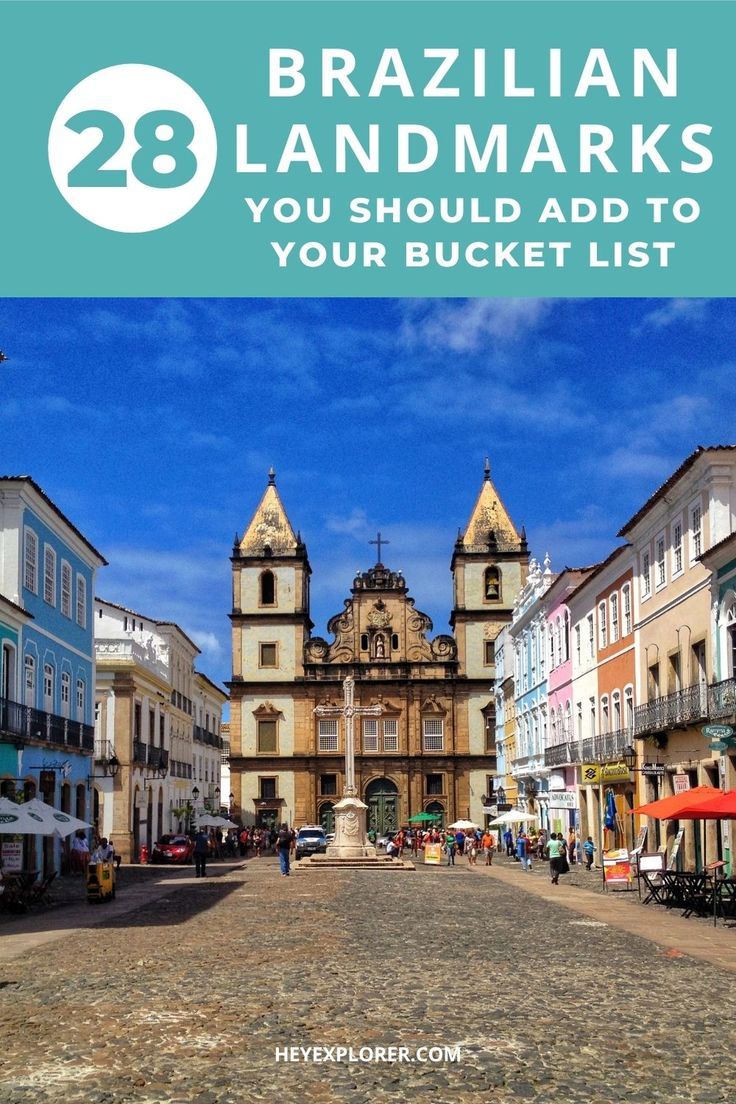
Planning Your Greek Odyssey: Essential Preparations for a Memorable Trip
Embarking on a Greek adventure requires thoughtful planning to ensure a seamless and enriching experience. Understanding the best times to visit, visa requirements, budgeting, and packing essentials are crucial first steps for anyone considering traveling through Greece. These initial preparations lay the groundwork for a stress-free exploration of its wonders.
Best Time to Travel to Greece: Seasons and Serenity
Choosing the right time to visit Greece significantly impacts your experience. The shoulder seasons (April-May and September-October) are often considered ideal. During these months, the weather is pleasant, crowds are thinner, and prices for flights and accommodation tend to be more reasonable.
- Summer (June-August): Peak season. Expect hot weather, bustling islands, and higher prices. Perfect for beach lovers and nightlife seekers, but be prepared for crowds.
- Spring (April-May): Lush landscapes, comfortable temperatures, and fewer tourists. Ideal for hiking, sightseeing, and enjoying the blooming wildflowers.
- Autumn (September-October): Warm seas perfect for swimming, pleasant temperatures for exploring, and a relaxed atmosphere as the summer crowds dissipate.
- Winter (November-March): Cooler temperatures, some island services might be limited. Best for city breaks in Athens or Thessaloniki, skiing in the mountains, and experiencing local life without tourist crowds.
Visa and Entry Requirements for Greece: Smooth Sailing
For most visitors from the USA, Canada, Australia, and the UK, no visa is required for stays up to 90 days within a 180-day period, as Greece is part of the Schengen Area. However, it’s always wise to check the latest requirements based on your nationality before you travel.
- Passport Validity: Ensure your passport is valid for at least three to six months beyond your intended departure date from the Schengen Area.
- Travel Insurance: Highly recommended for medical emergencies, trip cancellations, and lost luggage.
- ETIAS (European Travel Information and Authorisation System): Starting in mid-2025, non-EU citizens who currently enjoy visa-free travel to the Schengen Area will need to apply for an ETIAS authorization. Keep an eye on official updates.
Budgeting for Your Greek Adventure: Smart Spending
Greece can accommodate various budgets, from luxurious island escapes to affordable backpacking trips. Your spending will largely depend on your travel style, accommodation choices, and dining preferences.
- Accommodation: Hostels can cost €20-40 per night, mid-range hotels €60-120, and luxury resorts upwards of €200. Booking in advance, especially during peak season, can secure better rates.
- Food: Enjoy delicious street food like gyros for €3-5. A meal at a traditional taverna can range from €15-30 per person, while fine dining will be considerably more.
- Transportation: Ferry costs vary widely depending on distance and speed (€20-80+). Bus tickets within cities are usually €1.20-1.50. Car rentals start around €30-50 per day.
- Activities: Museum entry fees are typically €5-20. Many historical sites offer reduced prices or free entry on specific days.
Tip: Consider purchasing a multi-site ticket in Athens for significant savings on ancient attractions.
Packing Essentials for Traveling Through Greece: What to Bring
Packing smartly is key to enjoying your Greek journey. The items you bring will depend on the season and your planned activities, but some essentials remain constant for exploring Greece.
- Clothing: Lightweight, breathable fabrics are ideal for summer. Include a light jacket or sweater for cooler evenings, even in summer. If visiting monasteries (like Meteora), modest clothing (shoulders and knees covered) is required.
- Footwear: Comfortable walking shoes are a must for exploring ancient sites and cobblestone streets. Sandals or flip-flops are great for beaches.
- Sun Protection: Sunscreen, a wide-brimmed hat, and sunglasses are vital, especially during warmer months.
- Essentials: Reusable water bottle, a small daypack, universal travel adapter, basic first-aid kit, and any personal medications.
- Swimwear: If visiting coastal areas or islands, don’t forget your swimsuits!
Navigating Greece: Transportation Tips for Seamless Exploration
Greece’s diverse geography, encompassing a vast mainland and thousands of islands, means transportation is a vital part of any travel plan. Understanding the best ways to get around will make your journey efficient and enjoyable, whether you’re exploring ancient ruins or island hopping in Greece.
Getting Around Mainland Greece: Trains, Buses, and Cars
The mainland offers a robust network of transportation options, connecting major cities and historical sites.
- Buses (KTEL): The most extensive and affordable public transport network, connecting almost all towns and cities. Buses are reliable, comfortable, and often air-conditioned.
- Trains: While less extensive than the bus network, trains offer scenic routes, especially between Athens and Thessaloniki. They can be a good option for longer distances.
- Rental Cars: Renting a car provides the ultimate flexibility, especially for exploring rural areas, remote beaches, or sites like Meteora. Be prepared for narrow, winding roads and sometimes aggressive driving, particularly in cities. An International Driving Permit (IDP) is recommended for non-EU license holders.
- Taxis/Ride-Sharing: Readily available in cities. Taxis can be hailed on the street or booked via apps. Ride-sharing apps like Uber (Athens only) or Beat are also present.
Island Hopping in Greece: Ferries and Flights
Exploring the iconic Greek islands is a highlight for many. Ferries and domestic flights are the primary ways to move between them.
- Ferries: The quintessential Greek island-hopping experience. Various companies operate routes, offering different speeds (conventional vs. high-speed catamarans) and comfort levels. Book tickets in advance, especially for popular routes and during peak season. Websites like Ferryhopper or Viva.gr are useful for checking schedules and prices.
- Domestic Flights: For longer distances or when time is limited, domestic flights are a fast option. Airlines like Aegean Airlines and Sky Express connect Athens with most major islands (e.g., Santorini, Mykonos, Crete, Rhodes) and Thessaloniki. Booking in advance typically yields better prices.
Tip: When island hopping, group islands by proximity (e.g., Cyclades, Dodecanese) to minimize travel time and maximize exploration.
Local Transport in Greek Cities: Taxis and Public Transit
Greek cities, particularly Athens and Thessaloniki, have efficient public transport systems.
- Athens Metro: Clean, efficient, and connects major attractions (Acropolis, Syntagma Square) and the airport. It’s often adorned with archaeological finds in its stations.
- Buses and Trams: Supplement the metro, providing extensive coverage within urban areas.
- Taxis: Convenient but ensure the meter is used or agree on a fare beforehand for longer journeys. Apps like Beat can offer fixed fares.
Experiencing Greece’s Wonders: Must-Visit Destinations and Activities
Greece is a treasure trove of ancient history, stunning natural beauty, and vibrant contemporary culture. Deciding where to go and what to see can be overwhelming, but certain destinations offer an unparalleled experience for anyone traveling across Greece.
Athens: Ancient Marvels and Urban Charm
The capital city, Athens, is a vibrant metropolis where ancient history intertwines with modern life. It’s an essential starting point for any Greek travel guide.
- Acropolis: Home to the Parthenon, Propylaea, Erechtheion, and Temple of Athena Nike. A UNESCO World Heritage site and an absolute must-see.
- Acropolis Museum: A modern architectural marvel housing artifacts found on the Acropolis, offering stunning views of the Parthenon.
- Plaka and Anafiotika: Charming historic neighborhoods beneath the Acropolis, perfect for strolling, dining, and souvenir shopping.
- Ancient Agora: The heart of ancient Athenian public life, featuring the well-preserved Temple of Hephaestus.
- Syntagma Square: The central square, home to the Hellenic Parliament and the Tomb of the Unknown Soldier, where you can witness the changing of the Presidential Guard.
The Cyclades: Iconic Islands for Every Traveler
The Cycladic islands, with their whitewashed villages, blue-domed churches, and stunning beaches, are arguably Greece’s most famous.
- Santorini: Famous for its spectacular sunsets, volcanic caldera views, and unique architecture in Fira and Oia. Ideal for romantic getaways.
- Mykonos: Known for its lively nightlife, beautiful beaches, and chic atmosphere. A popular choice for party-goers and luxury travelers.
- Naxos: The largest of the Cyclades, offering diverse landscapes, long sandy beaches, traditional villages, and excellent local food. Great for families and those seeking a more authentic experience.
- Paros: A balanced island with charming towns (Parikia, Naoussa), beautiful beaches, and a vibrant but relaxed atmosphere. Popular for windsurfing and kitesurfing.
- Milos: Known for its unique volcanic rock formations, stunning beaches (Sarakiniko, Kleftiko), and charming fishing villages.
Crete: A Large Island of Diverse Landscapes and Culture
Greece’s largest island, Crete, is a world unto itself, offering everything from ancient Minoan palaces to rugged mountains and pristine beaches.
- Knossos Palace: The heart of the ancient Minoan civilization, offering a glimpse into Europe’s oldest city.
- Samaria Gorge: One of Europe’s longest gorges, perfect for a challenging but rewarding hike.
- Elafonisi Beach: Famous for its pink sand and crystal-clear turquoise waters.
- Chania and Rethymno: Charming Venetian harbor towns with picturesque old towns, narrow alleys, and excellent dining.
- Heraklion: The capital city, home to the Heraklion Archaeological Museum, which houses many Minoan artifacts.
Northern Greece: Thessaloniki, Meteora, and Beyond
Beyond the islands, mainland Greece offers equally captivating experiences, rich in history and natural beauty.
- Thessaloniki: Greece’s second-largest city, known for its Byzantine history, vibrant food scene, and lively cultural atmosphere. Don’t miss the White Tower, Rotunda, and Arch of Galerius.
- Meteora: A truly unique UNESCO World Heritage site featuring ancient monasteries perched atop towering rock pillars. An awe-inspiring sight and spiritual experience.
- Delphi: An ancient sanctuary and the seat of the most important oracle in the classical Greek world. Its dramatic setting on Mount Parnassus adds to its mystique.
- Peloponnese: A peninsula rich in history, home to ancient Olympia (birthplace of the Olympic Games), Mycenae, Epidaurus (famous for its ancient theatre), and the stunning medieval castle town of Monemvasia.
Unforgettable Experiences While Traveling Greece: Food, History, Beaches
Greece offers a tapestry of experiences beyond specific sites. Embrace these elements for a truly immersive trip.
- Culinary Delights: Savor traditional Greek cuisine – fresh seafood, moussaka, souvlaki, Greek salads, and delicious pastries like baklava.
- Historical Immersion: Walk through millennia of history at countless archaeological sites, from ancient temples to Byzantine churches.
- Beach Bliss: Relax on some of the world’s most beautiful beaches, from the volcanic shores of Santorini to the turquoise waters of the Ionian Sea.
- Local Festivals: If your timing is right, experience a local festival (panigiri) for traditional music, dancing, and food.
Cultural Immersion and Practical Advice for Traveling Greece
To truly appreciate Greece, it’s essential to engage with its rich culture and understand local customs. Practical tips for dining, etiquette, safety, and connectivity will enhance your journey and ensure you’re well-prepared for any situation while traveling Greece.
Greek Cuisine: A Culinary Journey Through Greece
Greek food is a highlight for many visitors. It’s fresh, flavorful, and deeply rooted in the Mediterranean diet.
- Tavernas and Ouzerias: These traditional eateries are the heart of Greek dining. Tavernas serve full meals, while ouzerias offer small plates (mezedes) to accompany ouzo or tsipouro.
- Must-Try Dishes:
- Moussaka: Layers of eggplant, minced meat, and béchamel sauce.
- Souvlaki/Gyros: Grilled meat skewers or sliced meat served in pita bread with tzatziki.
- Greek Salad (Horiatiki): Fresh tomatoes, cucumbers, onions, olives, and feta cheese, drizzled with olive oil.
- Fresh Seafood: Especially on the islands, don’t miss grilled octopus, calamari, and fresh fish.
- Tzatziki: Yogurt dip with cucumber, garlic, and dill.
- Spanakopita: Savory spinach pie.
- Coffee Culture: Greece has a strong coffee culture. Try a traditional Greek coffee or a refreshing frappe (iced instant coffee).
- Tipping: Tipping is appreciated but not mandatory. Round up the bill or leave a few euros for good service (10-15% is generous).
Etiquette and Local Customs in Greece: Respectful Exploration
Understanding and respecting local customs will greatly enhance your interactions with Greeks, who are generally warm and hospitable.
- Greetings: A simple "Kalimera" (good morning), "Kalispera" (good evening), and "Efharisto" (thank you) go a long way.
- Modesty: When visiting churches or monasteries, dress modestly (shoulders and knees covered for both men and women).
- Hospitality (Filoxenia): Greeks are known for their hospitality. If offered a treat or drink, it’s polite to accept.
- Hand Gestures: Avoid the "moutza" (an open palm thrust forward), which is considered offensive.
- Punctuality: Greeks often operate on "Greek time," which can be more relaxed than in some Western cultures. Don’t be surprised if things run a little late.
Staying Safe and Healthy in Greece: Important Travel Tips
Greece is generally a safe country for tourists, but like anywhere, it’s wise to take precautions.
- Petty Crime: Be aware of pickpocketing, especially in crowded tourist areas of Athens (e.g., around the Acropolis, on public transport). Keep valuables secure.
- Driving: Exercise caution when driving, as Greek drivers can be aggressive.
- Sun Exposure: The Greek sun can be intense. Stay hydrated, use sunscreen, and seek shade during peak hours.
- Water: Tap water is generally safe to drink in most cities and towns, but bottled water is widely available. On some islands, it’s better to stick to bottled water.
- Medical Care: European Health Insurance Card (EHIC) covers EU citizens. Non-EU citizens should have comprehensive travel insurance. Pharmacies (farmakeio) are well-stocked and can offer advice for minor ailments.
- Emergency Numbers: 112 for all emergencies (police, ambulance, fire).
Communication and Connectivity in Greece: Staying Connected
Staying connected is easy in Greece, ensuring you can navigate, share your experiences, and keep in touch.
- Wi-Fi: Free Wi-Fi is common in hotels, cafes, restaurants, and some public areas.
- Mobile Data: Consider purchasing a local SIM card from providers like Vodafone, Cosmote, or Wind for affordable data and calls. This is often cheaper than international roaming charges. eSIMs are also a convenient option for many modern phones.
- Language: While Greek is the official language, English is widely spoken in tourist areas, hotels, and major cities. Learning a few basic Greek phrases will be appreciated by locals.
Conclusion: Your Unforgettable Journey Across Greece Awaits
Traveling Across Greece With Complete Travel Tips is more than just a guide; it’s an invitation to embark on an extraordinary adventure. From the ancient echoes of Athens to the sun-kissed beaches of the Cyclades, the rugged beauty of Crete, and the spiritual heights of Meteora, Greece offers a depth of experience unlike any other. By planning smartly, embracing local customs, and utilizing these practical insights, you are now well-equipped to navigate its wonders with confidence and curiosity.
So, pack your bags, prepare your senses for an assault of beauty, flavor, and history, and get ready to create memories that will last a lifetime. Greece isn’t just a destination; it’s an experience that captivates the soul and leaves an indelible mark on every traveler who ventures to its shores. Enjoy your Greek odyssey!










